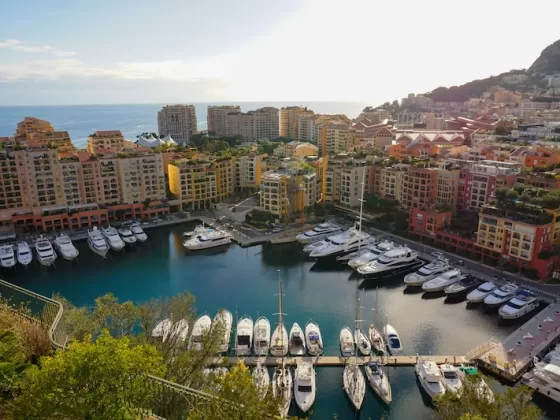Offshore Trusts Offer More Freedom
The main advantage of an “offshore” or foreign trust is that it removes you from the U.S. court system. Just as you diversify investments, you can diversify jurisdictions for your asset protection plan.
The single biggest difference in comparing offshore and domestic asset protection trusts, and quite possibly the most important, is that all domestic asset protection trusts are necessarily governed by US law. This means that a domestic trust does not fully separate your assets from the US legal system. Thus, DAPTs come with legal vulnerabilities that are not found in offshore planning tools.

Let’s examine some of the differences:
Cost
As you might imagine, a major factor in determining whether to use a domestic or foreign asset protection trust is the price tag.
Of course, there is no way to give a precise figure here. There are many factors that affect the cost of an asset protection trust, and the only way to get a firm estimate is to consult with one of our attorneys and talk the situation over thoroughly.
Still, here are some of the factors that impact the cost.
- If you are creating a domestic asset protection trust, then the initial setup fee for the trust can start around $12,000, perhaps even more.
- If you are creating a foreign asset protection trust, then the setup fee is higher. To start, expect to pay $25,000, and probably closer to $30,000 or more.
In addition to these initial setup fees, there will be annual maintenance fees for both types of trusts, ranging into the thousands. Here, too, the cost of a foreign asset protection trust is higher than that of a domestic one.
Neither trust comes free, and both have costs to establish and maintain. However, a foreign trust is significantly more expensive than a domestic one.
Legal Precedent
Perhaps surprisingly, foreign asset protection trusts are actually older than domestic ones.
The Cook Islands International Trusts Act, which is the law allowing for the creation of FAPTs in the Islands, was originally passed back in 1988, although it has been amended a few times since then.
DAPTs have a much shorter history. The first state to permit them, which was Alaska, did so in 1997. The Nevada Asset Protection Trust dates back to 1999.
The primary advantage of a FAPT over a DAPT is the foreign jurisdiction itself. Because the trust and the trustee are domiciled in a foreign jurisdiction, they are often not required to respect and enforce U.S. judgments. Accordingly, U.S. courts often have difficulty asserting jurisdiction over the trustee in order to execute judgments. Thus, creditors may often be required to relitigate in the country of formation, which can be incredibly difficult as many of these jurisdictions have extremely favorable trust law, which bars many claims against the trust. Even if a creditor succeeds in bringing a case against the trust, costs and administrative hurdles increase and the likelihood of an enforceable judgment remains low.
Privacy
Beyond standard trust features, the extent to which a trust can offer a desired level of privacy and other benefits will depend on the laws of the jurisdiction in which the trust is established. Famed offshore banking and trust locale the Cayman Islands, for example, do not require the filing of financial statements or audits for non-investment fund entities. Other jurisdictions offer similar benefits. Nevis, a small Caribbean Island, has neither a public registry nor a database of corporate records accessible to the public. And trusts set up in the Cook Islands—a tiny nation in the Pacific with political ties to New Zealand—benefit from local laws that make it illegal to identify who owns a trust or to provide any information about them.
The government of the Cook Islands only keeps records of the name of the trust and the trustee. It doesn’t keep any records of the settlors or beneficiaries of the trusts, which means that your name will not be anywhere.
Fraudulent Conveyance
The only way your adversary can have access to those assets is to prove fraudulent conveyance. In the commonly used offshore jurisdictions, the statute of limitations for fraudulent conveyance is often as short as two years from the date of the transfer of the assets into the trust. This is not a long time in the legal world. Your adversary will likely run out of time and will either have to settle with you or pursue steadily mounting legal costs with no guarantee of success.
Deterrence
A large part of asset protection involves Lawsuit deterrence.
If done properly, asset protection should make creditors less likely to sue you.
Since FAPTs have so many more procedural hurdles than DAPTs, it should come as no surprise that they offer more dissuasive power.
When you have the proper legal tools in place before a lawsuit strikes, you’re in an advantageous position. This could mean the difference between quickly settling out of court or costly litigation. Once you have protected your assets, a creditor or potential legal opponent has to face the fact that you are not an easy target. They must decide how much time and money they want to throw at pursuing you.
The best asset protection strategies often include offshore trusts. When you implement an offshore asset protection strategy, you can take advantage of the most favorable laws in the world. A creditor who wants to pursue your wealth will face practically insurmountable barricades. You can have our reputable, licensed, bonded trustee/international law firm step in to protect you. Why? Because they are not subject to your local court’s orders. You can take advantage of foreign jurisdiction statutes that can afford you near bulletproof protection.
Appearance
Creating a trust in another state has less of a stigma attached to it than “offshoring” does, even if you are not offshoring for an illegal or unethical purpose. The term evokes all sorts of negative connotations, and many clients are concerned that this will give their actions an aura of wrongness in court. Luckily, places like the Cook Islands and Mauritius are well respected enough that an individual opening a trust there would not face any stigmatization.
To many people, offshore trusts sound so foreign that most automatically assume they must be shady and illegal. They are not, you have as much right to try to protect your assets as a creditor has to try to obtain them; you shouldn’t feel guilty about not pulling any punches when they almost certainly will not. And offshoring your assets is a perfectly legitimate means of protecting them, as long as you follow all the necessary laws. Trusts, in general, are much more than a fancy and costly will.
Deciding on Protection
Deciding whether to use a DAPT or FAPT is a complex decision involving many factors.
There may be times when you want to be absolutely sure that your assets are protected from just about anything. This includes protection exempt creditors defined by US states law or judgments. If so, a properly established offshore asset protection trust is the only option available.
Domestic trusts, for their part, are cheaper and easier to set up, but do not offer quite the same level of protection as a foreign trust.
In choosing which trust is right for you, there are a couple of major factors to consider.
- First, how much risk do you face? Certain groups, including individuals in certain professions, face a very high probability of a lawsuit. The higher this probability, the more likely it will be that offshoring will be the right option for you.
This determination involves a careful analysis of exactly what your risks are. For instance, doctors are at a high risk of a lawsuit generally – but some fields of medicine are more dangerous than others. No two situations are alike and there are a lot of factors that affect your risk level.
- Second, how much are you planning to put in the trust? The more assets you own, the more reason you have to offshore them, both because you can afford to do so and because you have more to lose.
Where should you draw the line? As a general rule, offshoring is the preferable option once you reach the $1 million mark. If you have less than seven figures, then you can probably make do with a DAPT, unless your risk level is truly dire.
Are you confused about what type of trust you should create to protect your assets?
Our team has years of experience and is ready to guide and assist you Contact us today!
Here are some other articles that you may find of interest:
The Cook Islands Asset Protection Trust and History
Incorporating Offshore: What Tax Advantages Should You Expect?











